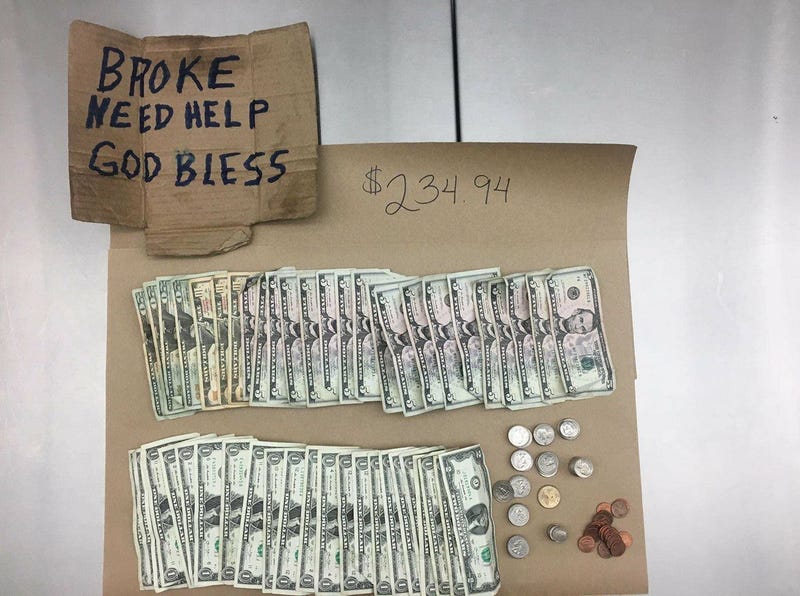
Mahatma Gandhi is quoted as saying, “A nation’s greatness is measured by how it treats its weakest members,” and this statement rings true today, especially in these United States. With the homeless population remaining an often overlooked segment of our population, it takes a special kind of dick to kick a man while he’s down and shame the people who tried to help him in their own way.
The Cheyenne, Wyo., Police Department proved that it is indeed that special kind of dick on Sunday when the department took to its Facebook page to brag about arresting an intoxicated panhandler whom officers frequently deal with. The department put his sign asking for help, as well as the $234.94 he had collected from kind strangers, on display:
The post read:
Yesterday, July 22, we arrested a transient for public intoxication. This is a person we frequently deal with, but we want to illustrate that there are better ways to help the transient population than to give them money for panhandling. This person collected $234.94 in just a few hours of asking for money. Rather than feeding someone’s alcohol addiction, you can donate directly to local charities such as the Comea Shelter where your money will assist the homeless in a much more effective way.
Public outrage against the post was immediate. Commenters accused the department of publicly shaming homeless people and stereotyping them as alcoholics and drug addicts. There were also accusations that the department had confiscated the person’s money and intended to keep it.
Others complained that it is not up to police to tell them how they should help others; they can decide on their own what to do with their money.
There were also those who supported the CPD’s decision and ridiculed their fellow commenters for misunderstanding the department’s intent.
On Tuesday the department posted a follow-up message explaining its intent and assuring the public that the “transient” in question had been arrested numerous times for similar offenses, and that the money in question was inventoried as part of standard arrest procedure and would be returned to the owner upon his release from jail.
“This post was put up to illustrate how our best intentions of helping somebody out may actually enable them to continue in their alcoholism or other self-destructive behaviors,” the department wrote.
“We have been helping people get out of the cycle of addiction by intervening after the initial arrest and providing those arrested with resources for assistance. This includes addiction counselors working with people in the jail as well as providing counseling services when that person is released.”
Uh, OK then.


